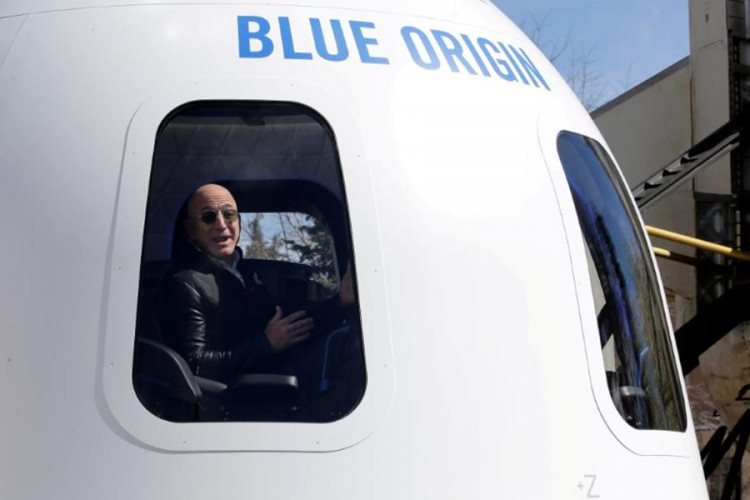In a recent turn of events, Blue Origin, the space company owned by Amazon founder Jeff Bezos, experienced a significant setback when one of its rocket engines exploded during a test last month. The BE-4 engine detonated about 10 seconds into the test at a West Texas facility, causing substantial damage to the engine and the test stand infrastructure.
The engine that exploded was scheduled to complete testing in July and was then to be shipped to Blue Origin's customer, United Launch Alliance (ULA), for use on ULA's second Vulcan rocket launch. The incident has raised concerns about potential delays in the already rescheduled first Vulcan launch, which is now slated for the fourth quarter of this year.
Blue Origin confirmed the incident, stating that the company "ran into an issue while testing Vulcan's Flight Engine 3." The company is currently assessing the root cause of the explosion and working on remedial actions. No personnel were injured in the incident, and ULA was immediately informed about the situation.
ULA, a rocket-building joint venture of Boeing and Lockheed Martin, competes primarily with Elon Musk's SpaceX. The company is currently preparing to bid for Phase 3 contracts under the U.S. Space Force's National Security Space Launch (NSSL) program. All six of ULA's NSSL missions are set to fly on Vulcan, and the company needs Vulcan to be certified as soon as possible to begin flying national security missions.
The incident has also raised concerns about Blue Origin's own reusable New Glenn rocket, which is currently under development and requires seven BE-4 engines. The company needs to produce dozens of engines a year to support both rockets. Blue Origin's BE-4 engine was supposed to be ready by 2017, but a series of development issues has delayed the completion of the first flight-ready engines.
This incident is a stark reminder of the risks and challenges inherent in space exploration and technology development. It underscores the importance of rigorous testing and safety protocols in the industry. As the investigation into the cause of the explosion continues, the space industry will be watching closely for the implications of this incident on future rocket launches and the broader landscape of space exploration.






